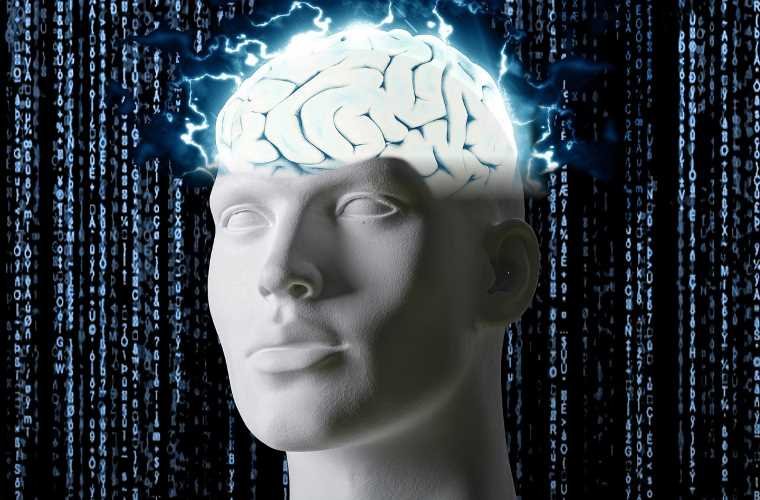An FDA-approved asthma drug some are calling ‘magic’ has shown the ability to restore lost memories and reveal previously hidden knowledge.
A similar recovery of seemingly inaccessible memories was also demonstrated using optogenetic therapy, but the relatively safe drug is non-invasive and equally successful. If proven effective, this novel approach could offer a new ray of hope for millions suffering from conditions like dementia and Alzheimer’s, or simply help everyday people remember critical elements of their lives lost to the passage of time.
Restoring Memories More Fiction than Fact
In TV and the movies, lost memories can sometimes be retrieved using hypnosis (dubbed hypnotic regression) or via other therapeutic methods like revisiting a specific location or even exposure to a familiar stimulus. In real life, most of these methods can offer some measure of hope, but more often than not lost memories simply remain lost.
Now a team of researchers from the University of Groningen in the Netherlands has zeroed in on the relationship between learning while sleep deprived and the difficulties in retrieving that knowledge to unlock the door to all of the lost memories and hidden knowledge that still remains stored within our brains. And based on their initial findings, a safe and simple asthma drug that is already in use may hold the key.
Asthma Drug Equals Optogenetic Stimulation to Retrieve Lost Memories
“Sleep deprivation undermines memory processes, but every student knows that an answer that eluded them during the exam might pop up hours afterward,” explains University of Groningen neuroscientist Robbert Havekes. “In that case, the information was, in fact, stored in the brain, but just difficult to retrieve.”
This duality motivated Havekes and his associates to see if they could replicate learning something specific, and then use two different approaches to retrieve that memory when it doesn’t come back on its own.
First, they genetically engineered mice to produce a light-sensitive protein (channelrhodopsin) within selected neurons that are activated when the mouse is learning something. This allowed researchers the ability to help the mice recall a learned task by shining a light onto the selected nerve cells and activating the protein.
“In our sleep deprivation studies, we applied this approach to neurons in the hippocampus, the area in the brain where spatial information and factual knowledge are stored,” said Havekes.
Next, the genetically engineered mice were given the task of learning the location of a number of specific objects. Spatial learning relies heavily on the hippocampus, so the task of recalling something’s location was the perfect way to test if their technique could restore the memory once it was lost. Also, half of the mice had been intentionally sleep-deprived. Days later, both groups of mice had to perform the same spatial memory task, but one of the objects had been moved.
Sure enough, the mice who had been trained while sleep-deprived failed to notice the moved object’s new location, indicating that they had somehow “lost” the memory, whereas the “rested” mice spotted the change, indicating they still retained a memory made days earlier. The researchers then blasted the target memory neurons of the sleep-deprived mice with light to activate them, and something incredible happened.
“When we reintroduced them to the task after reactivating the hippocampal neurons (that initially stored this information) with light, they did successfully remember the original locations,” said Havekes. “This shows that the information was stored in the hippocampus during sleep deprivation, but couldn’t be retrieved without the stimulation.”
In short, the memory was still there, but the mouse who had made the memory while sleep-deprived couldn’t retrieve it, just like the student who pulls an all-nighter and then suddenly blanks during the test. But when that area of the brain was reactivated using the light, the mouse suddenly had access to its original memory, meaning it had been stored in the first place and was simply inaccessible, not lost.
Unfortunately, the method of shining a light directly onto the brain is incredibly invasive, not to mention the genetic engineering component, so it probably isn’t the preferred approach if and when this science is applied to humans.
On a hunch, and hoping to find a less invasive solution, the researchers tried an already FDA-approved asthma drug called roflumilast, which is known to enter the brain and cause neuron activation. And just as they had hoped, the drug’s ability to activate key neurons and restore lost memories was just as effective as the genetically engineered, light-activated method.
“When we gave mice that were trained while being sleep-deprived roflumilast just before the second test, they remembered, exactly as happened with the direct stimulation of the neurons,” explained Havekes.
Releasing Hidden Knowledge and Treating Clinical Memory Loss
The researchers note that along with their proposed memory-retrieval process, which they outline in the journal Current Biology, a critical piece of information gained by this study is that a lot of previously learned knowledge may still reside in the brain but is simply inaccessible without direct stimulation. This “hidden knowledge” may include long-held memories that have faded over time like the name of one’s first love, or even a financially valuable memory like a lost crypto wallet password or the location of some hidden treasure. Of course, the researchers say the greatest potential for their seemingly safe method involves helping folks with dementia, Alzheimer’s or other forms of memory loss retrieve portions of their lives that have been sacrificed to the ravages of disease.
“It might be possible to stimulate the memory accessibility in people with age-induced memory problems or early-stage Alzheimer’s disease with roflumilast,” says Havekes. “And maybe we could reactivate specific memories to make them permanently retrievable again, as we successfully did in mice.”
Havekes is quick to note that “this is all speculation,” but given the successes his team had in the lab, he believes his work can serve as a guidepost for researchers and pharmaceutical companies who are trying desperately to help folks retrieve their lost memories. Finally, and perhaps unsurprisingly, the researcher is just as enthusiastic about the new questions his work opens up as he is about the previously accumulated knowledge it may reveal.
“What makes memories accessible or inaccessible?” Havekes asks. “How does roflumilast restore access to these ‘hidden’ memories? As always with science, by addressing one question you get many new questions for free.”
Christopher Plain is a novelist, comedian, and Head Science Writer at The Debrief. Follow and connect with him on Twitter, learn about his books at plainfiction.com, or email him directly at christopher@thedebrief.org.

